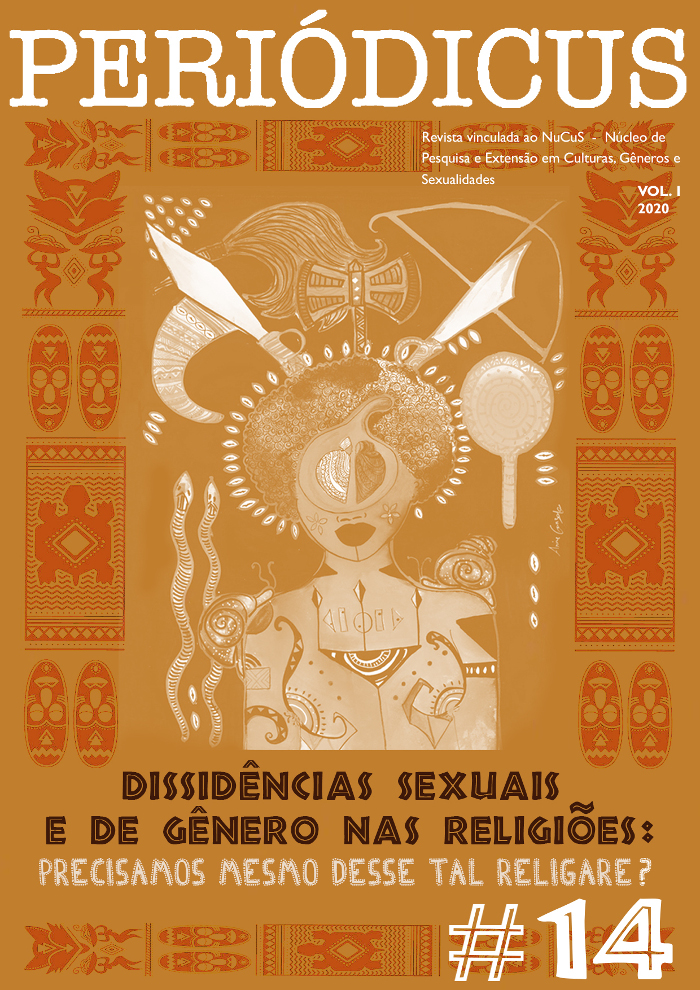Far beyond the Rainbow: homosexuality(ies) and sexual diversity in discursive practices around an Inclusive Church in the city of Recife – PE
DOI:
https://doi.org/10.9771/peri.v1i14.37715Abstract
This article is the result of a qualitative research with exploratory nature under development that analyzes the‘hegemonic clashes’ between discursive fields of inclusive churches and traditional churches around gender and sexuality
issues. Based on Discourse Theory in dialogue with Discourse Analysis, we verify the discursive practices that inclusive
churches reproduce and transfer from traditional churches regarding the relation between Christian religion and sexual and
gender diversity. For such, semi-structured interviews were applied with members of an inclusive church in Recife,
Pernambuco. The social logics of transference, distinction, and Christian restitution were shown to be affirmative and
converted Christian ethos, which, in turn, are interrelated to the conflicting configuration of social and discursive practices
driven by political and religious dispute.
Downloads
Downloads
Published
How to Cite
Issue
Section
License
Copyright (c) 2021 Silas Veloso de Paula Silva, Júllia Alves de Almeida, Priscylla Karollyne Gomes Dias

This work is licensed under a Creative Commons Attribution-NonCommercial 4.0 International License.
Autores que publicam nesta revista concordam com os seguintes termos:
Autores mantêm os direitos autorais e concedem à revista o direito de primeira publicação, com o trabalho simultaneamente licenciado sob Licença Creative Commons Attribution Noncommercial que permite o compartilhamento do trabalho com reconhecimento da autoria e publicação inicial nesta revista, sendo vedado o uso com fins comerciais.
Autores têm autorização para assumir contratos adicionais separadamente, para distribuição não-exclusiva da versão do trabalho publicada nesta revista (ex.: publicar em repositório institucional ou como capítulo de livro), com reconhecimento de autoria e publicação inicial nesta revista.
Autores têm permissão e são estimulados a publicar e distribuir seu trabalho online (ex.: em repositórios institucionais ou na sua página pessoal) a qualquer ponto antes ou durante o processo editorial, já que isso pode gerar alterações produtivas, bem como aumentar o impacto e a citação do trabalho publicado (Veja O Efeito do Acesso Livre).







